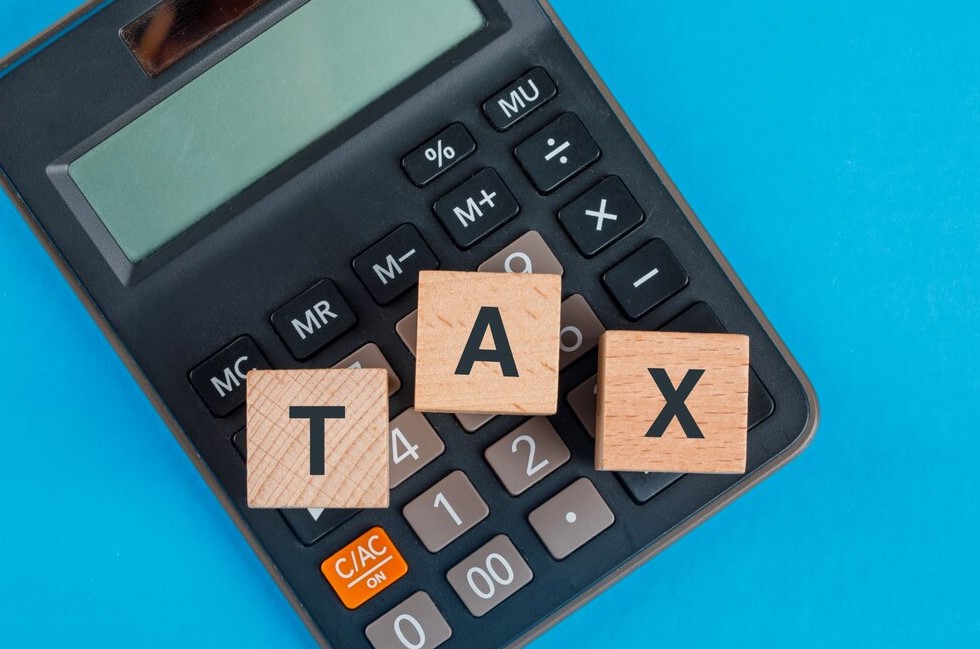VAT Deregistration in the UAE: When and How to Do It

Value Added Tax (VAT) deregistration is the formal process through which a business cancels its VAT registration with the UAE’s Federal Tax Authority (FTA). While the idea of deregistering may initially seem complex or overwhelming, it is a crucial step for companies that no longer meet the requirements for VAT registration or simply do not need it anymore—whether due to reduced turnover, business closure, or restructuring.
Understanding when and how to deregister for VAT in UAE is essential for staying compliant with local tax laws. Failing to properly deregister can result in penalties or legal complications, especially now as corporate tax regulations also come into effect, adding more responsibility for businesses operating in the UAE.
In this guide, we break down the complete process of VAT deregistration: who is eligible, what documents are required, when you should initiate the process, and most importantly—how to do it correctly. Whether you’re a small business or a large corporation, knowing the proper steps to cancel your VAT register number can save you time, money, and unnecessary stress.
At b2bconsulty, we offer expert services to support you through every stage—whether you need help with VAT in UAE, corporate tax compliance, or navigating FTA platforms. From registration to deregistration, our team ensures your business meets all legal and financial obligations smoothly and efficiently.
What Is VAT Deregistration?
VAT deregistration is the process of formally removing a business from the UAE’s VAT system. Once a company is deregistered, its Tax Registration Number (TRN) is deactivated, meaning it can no longer charge VAT on its sales or claim VAT on its purchases. This step effectively severs the business’s obligations under the VAT in UAE framework.
While registering for VAT is often seen as a major milestone, understanding when and how to deregister is equally important. Failing to do so at the right time can lead to fines, complications with the Federal Tax Authority (FTA), and unnecessary administrative work. That’s why working with professional VAT consultants in Dubai or a reliable tax consultant can help ensure the process is handled smoothly and in full compliance with the law.

Reasons to Deregister from VAT
Businesses may need to deregister for VAT under two main categories: mandatory and voluntary. Each comes with specific conditions that must be met, and navigating these requirements can be simplified with the help of a qualified tax advisor or consultancy services.
✅ Mandatory VAT Deregistration
You must apply for VAT deregistration if:
- – Your business ceases trading or is no longer making taxable supplies in the UAE.
- – Your taxable turnover falls below the voluntary registration threshold of USD 51,050 (AED 187,500) per year.
In these cases, VAT deregistration is required by law, and delays can result in penalties. A trusted tax consultant or VAT advisory service can assist with the necessary documentation and FTA submissions.
✅ Voluntary VAT Deregistration
You may also apply for deregistration voluntarily if:
- – Your annual taxable turnover falls below the mandatory threshold of USD 102,100 (AED 375,000) but remains above USD 51,050 (AED 187,500).
- – Your business has been VAT registered under voluntary rules for at least 12 months and now wishes to cancel its TRN.
In either case, it’s recommended to consult with experienced VAT consultants in Dubai or engage a professional consultancy that specializes in tax services. An expert advisor will guide you through the deregistration process, ensure accurate reporting, and help avoid any unnecessary complications with the FTA.
In both mandatory and voluntary VAT deregistration scenarios, the key factor lies in your business’s turnover and overall activity. Whether your figures fall below the required thresholds or your company shuts down entirely, knowing when and how to proceed with deregistration is crucial to stay compliant with VAT in UAE regulations.
Engaging a knowledgeable tax consultant or seeking guidance from experienced VAT consultants in Dubai can help you avoid costly mistakes and streamline the process.
Key Criteria and Thresholds for VAT Deregistration
The UAE VAT law defines two primary turnover thresholds that determine your eligibility for registration or deregistration:
- – USD 102,100 (AED 375,000): This is the mandatory registration threshold. If your annual taxable turnover drops below this figure, you are eligible to apply for voluntary deregistration.
- – USD 51,050 (AED 187,500): This is the voluntary registration threshold and also serves as the point at which mandatory deregistration is triggered. If your turnover falls under this amount—and it appears unlikely to increase in the coming months—you must deregister.
Additionally, if your business is being liquidated or permanently closed, deregistration is not optional—it becomes an obligation, regardless of your revenue.
To avoid penalties and complications with the Federal Tax Authority (FTA), it’s important to ensure all required steps are taken promptly and correctly. Working with a qualified advisor, or using the specialized services of a VAT-focused consultancy, can help you handle the deregistration process with confidence.
At b2bconsulty, we offer tailored VAT and tax services to support businesses through every step—from registration to deregistration and beyond.
How to Deregister from VAT in the UAE
VAT deregistration in the UAE is a structured process that involves more than simply filling out a form. Whether your VAT registration was mandatory or voluntary, the steps to cancel your Tax Registration Number (TRN) must be followed carefully to remain compliant with the Federal Tax Authority (FTA) regulations.
Here’s a detailed guide on how to successfully complete your VAT deregistration:
1. Log In to the FTA (EmaraTax) Portal
Begin by accessing the official EmaraTax portal using your registered FTA credentials. This is the main platform used for all tax-related services in the UAE, including VAT registration and deregistration.
2. Start a Deregistration Application
Once logged in, navigate to the “VAT Services” section. Here, you’ll find the option to begin your VAT deregistration request.
You’ll be asked to fill out an online form and provide a reason for deregistration. Common reasons include:
- – Business has stopped making taxable supplies
- – Turnover has fallen below the mandatory or voluntary threshold
- – Business closure or liquidation
Be sure to clearly state the applicable reason to avoid delays or rejection.
3. Provide Supporting Documents
To support your application, the FTA requires relevant documentation. Depending on your situation, you may need to submit:
- – A copy of your trade licence cancellation (if the business is closed or liquidated)
- – Financial statements proving your taxable turnover is below the required thresholds
- – Evidence of employee deregistrations or company shutdown
- – Confirmation that all pending VAT returns, tax liabilities, or administrative penalties have been cleared
These documents help the FTA verify that you no longer meet the criteria for VAT registration.
4. Review and Submit
Before submitting, double-check that all details in your deregistration form and attachments are accurate. Any inconsistencies could delay the process.
Once submitted, the status of your application will be marked as pending while the FTA reviews your request.
5. Submit Your Final VAT Return
If your deregistration is initially approved, you will be asked to file a final VAT return.
This return covers the last tax period up to the effective date of deregistration. You must:
- – Report and pay any remaining VAT due
- – Settle all liabilities
- – Submit a claim for any input tax credits (if applicable)
Proper filing of this return is crucial for final approval.
6. Receive Official Approval and Deregistration Certificate
Once all conditions are met and your final VAT return is processed, the FTA will officially deactivate your Tax Registration Number.
You will receive confirmation through the EmaraTax portal and will be able to download your VAT deregistration certificate for your records.
Navigating this process can be time-consuming, especially if you’re unfamiliar with the FTA system. Partnering with experienced VAT consultants in the UAE or a tax consultancy offering VAT services ensures accuracy, compliance, and peace of mind.
Need help with VAT deregistration or other tax matters? b2bconsulty provides expert support with everything from registration to deregistration—so you can focus on growing your business while we handle the numbers.

Post-Deregistration Compliance: What You Need to Know
Once your business has been officially deregistered from VAT in the UAE, your Tax Registration Number (TRN) becomes invalid. From that moment forward, you are no longer permitted to:
- – Charge VAT on any sales or services
- – Claim input tax on any expenses or business costs
However, deregistration doesn’t mean your obligations are entirely over. In fact, you’re still required to maintain your VAT records for at least five years after deregistration. For businesses involved in real estate, some records may need to be kept for up to 15 years in line with UAE tax regulations.
The Federal Tax Authority (FTA) may carry out audits or reviews during this time, so you must be ready to present historical invoices, returns, and supporting documents if requested.
How to Avoid Fines and Penalties
To ensure smooth VAT deregistration and avoid unexpected penalties, businesses should pay close attention to several common compliance risks:
🔴 1. Late Deregistration
If you miss the 20-business-day window for applying after becoming eligible, the FTA can impose a fine of up to USD 2,722 (AED 10,000). Acting promptly is critical.
🔴 2. Non-Filing of Returns
Even after initiating deregistration, you are still required to submit your regular VAT returns until the FTA officially confirms that your deregistration is complete. Failing to file—even if your turnover is zero—can result in late submission penalties.
🔴 3. Outstanding Tax Liabilities
Any unpaid VAT, penalties, or fees owed to the FTA must be settled before your deregistration can be finalized. The FTA will not approve your request if there are unresolved amounts linked to your account.
✅ Proactive Compliance is Key
By actively monitoring your turnover, staying updated on VAT in UAE regulations, and applying for deregistration at the appropriate time, you can avoid unnecessary stress and penalties. Businesses should also remain mindful of their obligations under the evolving corporate tax landscape in the UAE, as both systems now require coordinated compliance.
For peace of mind, consider working with experienced tax professionals. At b2bconsulty, our team offers expert VAT and corporate tax services in the UAE—helping you meet every requirement efficiently and avoid costly errors.
Legal Framework for VAT Deregistration in the UAE
The process of VAT deregistration in the UAE is backed by a clear legal structure that outlines who must deregister, when, and how. The main legislative sources include:
- – Federal Decree-Law No. 8 of 2017 on VAT (specifically Articles 21–24), which covers the legal grounds for VAT registration and deregistration.
- – Cabinet Decision No. 52 of 2017 (Executive Regulations), detailing implementation procedures and supporting requirements.
- – FTA decisions on administrative penalties, which emphasize the importance of applying for deregistration within 20 business days from becoming eligible.
Remaining compliant requires staying updated on the latest amendments, FTA announcements, and clarifications. Regularly reviewing official FTA guidance and consulting with a qualified tax consultant or VAT advisor in the UAE can help you avoid missteps.
Final Thoughts: Making VAT Deregistration Work for You
VAT deregistration may appear simple on the surface, but it’s a legally regulated process that must be handled with care. If your business has stopped making taxable supplies, falls below the mandatory threshold, or has been shut down, VAT deregistration is not optional—it’s a legal obligation under VAT in UAE regulations.
The key to avoiding issues lies in following the proper steps, respecting deadlines, maintaining accurate records, and settling all outstanding obligations. By staying compliant and organized, you reduce your risk of fines and ensure a seamless transition out of the VAT system.
If your business has unique circumstances—such as partial closures, VAT groups, or unsold inventory—it’s best to seek guidance from a professional tax consultancy. At b2bconsulty, we provide expert VAT and corporate tax services in the UAE, helping businesses navigate complex tax situations with ease and confidence.
Whether you need help confirming eligibility, preparing documentation, or completing your final VAT return, our advisors are here to guide you every step of the way.



